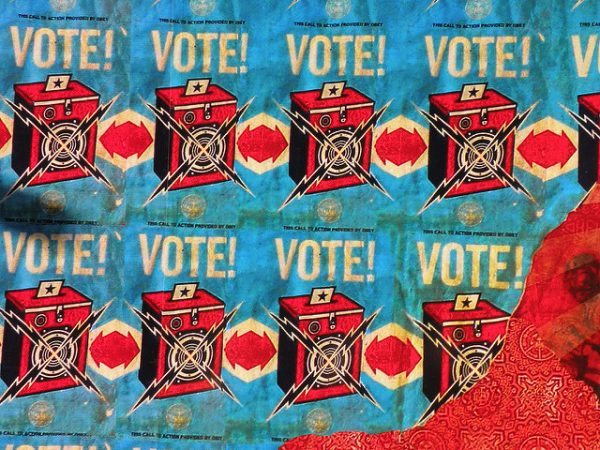
Political spectators anxiously await a final decision from the Supreme Court on the Wisconsin gerrymandering case, Gill v. Whitford. Gerrymandering occurs when legislators redraw voting districts in order to concentrate their electoral dominance. This highly anticipated judicial decision could stop gerrymandering practices and require courts around the country to search for bias in their district maps. While voting is the cornerstone of democracy, social science research on gerrymandering suggests that democratic ideals may not match up to how voting works in practice.
Wisconsin redistricting plans that were ratified in 2011 gave Republicans an advantage over Democrats in translating votes into seats in the legislature. Computer simulations can diminish partisanship in district drawing, but it remains unclear how effective this would be in reducing political polarization in Congress. One study suggests that redistricting does appear to diminish electoral competition, but does not appear to exacerbate polarization along party lines.
- Jowei Chen. 2017. The Impact of Political Geography on Wisconsin Redistricting: An Analysis of Wisconsin’s Act 43 Assembly Districting Plan. Election Law Journal 16(4): 1-10.
- Nolan McCarty, Keith T. Poole, and Howard Rosenthal. 2009. “Does Gerrymandering Cause Polarization?.” American Journal of Political Science 53(3): 666-680.
Political sociologists have shown that full voting rights are not as guaranteed in the United States as in many other major democracies, and gerrymandering is just one example of practices that lead to the under-representation of low-income voters and communities of color in the electoral process. For example, partisan gerrymandering reduced access to communication between ward residents, local nonprofits, and their political representatives in Chicago. There is also evidence it changed voters’ choices in Georgia. In short, gerrymandering has real consequences for racial inequalities and representation in the United States.
- Frances Fox Piven and Richard A. Cloward. 2000. Why Americans Still Don’t Vote: and Why Politicians Want it that Way. Boston: Beacon Press.
- Robert Vargas. 2016. Wounded City: Violent Turf Wars in a Chicago Barrio. New York: Oxford University Press.
- V. Hood and Seth C. McKee. 2008. “Gerrymandering on Georgia’s mind: The Effects of Redistricting on Vote Choice in the 2006 Midterm Election.” Social Science Quarterly 89(1): 60-77.

Comments